
Soul jazz or funky jazz is a subgenre of jazz that incorporates strong influences from hard bop, blues, soul, gospel and rhythm and blues. Soul jazz is often characterized by organ trios featuring the Hammond organ and small combos including tenor saxophone, guitar, and organ. Its origins were in the 1950s and early 1960s, with its heyday with popular audiences preceding the rise of jazz fusion in the late 1960s and 1970s. Prominent names in fusion ranged from bop pianists including Bobby Timmons and Junior Mance to a wide range of organists, saxophonists, and guitarists including Jack McDuff, Eddie "Lockjaw" Davis, and Grant Green.
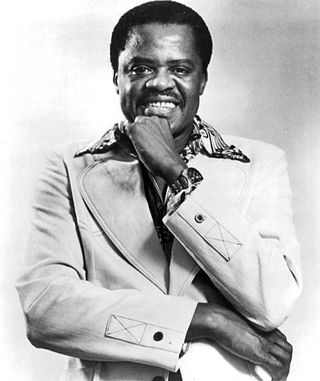
Stanley William Turrentine was an American jazz tenor saxophonist. He began his career playing R&B for Earl Bostic and later soul jazz recording for the Blue Note label from 1960, touched on jazz fusion during a stint on CTI in the 1970s. He was described by critic Steve Huey as "renowned for his distinctively thick, rippling tone [and] earthy grounding in the blues." In the 1960s Turrentine was married to organist Shirley Scott, with whom he frequently recorded, and he was the younger brother of trumpeter Tommy Turrentine, with whom he also recorded.

Shirley Scott was an American jazz organist. Her music was noted for its mixture of bebop, blues and gospel elements. She was known by the nickname "Queen of the Organ".
George Andrew Tucker was an American jazz double-bassist.

That's Where It's At is a 1962 jazz album by saxophonist Stanley Turrentine, recorded by Rudy Van Gelder for Blue Note Records. It features the first collaborations between Stanley Turrentine and pianist Les McCann who would only reunite one more time in 1984 for two tracks on Turrentine's Straight Ahead. Rounding up the rhythm section is Herbie Lewis on bass and Otis "Candy" Finch on drums. Lewis was in Les McCann's group, The Les McCann Ltd., and Finch was in organist Shirley Scott 's band. McCann wrote four of the tracks, Turrentine one, and Turrentine's brother, Tommy Turrentine, two. A Rudy Van Gelder remastered edition of the album was released on CD in 2005 with an alternate take of "Light Blue" as a bonus track.
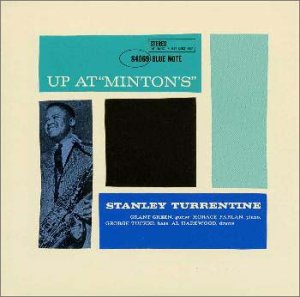
Up at "Minton's" is a live album by jazz saxophonist Stanley Turrentine recorded for the Blue Note label and performed by Turrentine with Grant Green, Horace Parlan, George Tucker, and Al Harewood. The album was originally released as two separate volumes on LP and later as a double CD set.

Never Let Me Go is the eighth album by jazz saxophonist Stanley Turrentine recorded for the Blue Note label and performed by Turrentine with Shirley Scott, Major Holley, Ray Barretto and Al Harewood, with Sam Jones and Clarence Johnston replacing Holley, Barretto and Harewood on two tracks.

A Chip Off the Old Block is an album by American jazz saxophonist Stanley Turrentine. The album features tunes associated with bandleader Count Basie, and was released by Blue Note. Music was performed by Turrentine with organist Shirley Scott, trumpeter Blue Mitchell, bassist Earl May, and drummer Al Harewood.

Hustlin' is an album by jazz saxophonist Stanley Turrentine recorded for the Blue Note label and performed by Turrentine with Shirley Scott, Kenny Burrell, Bob Cranshaw, and Otis Finch.
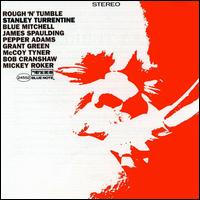
Rough 'n' Tumble is an album by jazz saxophonist Stanley Turrentine issued in 1966 on Blue Note Records. The album reached No. 20 on the Billboard Top Soul Albums chart.

The Spoiler is an album by jazz saxophonist Stanley Turrentine recorded for the Blue Note label in 1966 and performed by Turrentine with Blue Mitchell, James Spaulding, Pepper Adams, McCoy Tyner, Julian Priester, Bob Cranshaw, and Mickey Roker with arrangements by Duke Pearson.

Common Touch is an album by jazz saxophonist Stanley Turrentine featuring Shirley Scott recorded for the Blue Note label in 1968 and performed by Turrentine with Shirley Scott, Jimmy Ponder, Bob Cranshaw and Leo Morris. The CD reissue added one bonus track recorded in a different session and originally released on Ain't No Way. The other four tracks may be found on the CD reissue of Easy Walker.
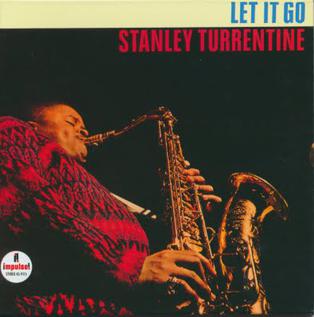
Let It Go is an album by jazz saxophonist Stanley Turrentine recorded for the Impuse! label in 1966 and performed by Turrentine with Shirley Scott, Ron Carter and Mack Simpkins. The CD release added four bonus tracks, three of which originally released on Scott's Everybody Loves a Lover recorded in 1964 and featuring Bob Cranshaw and Otis Finch in place of Carter and Simpkins.
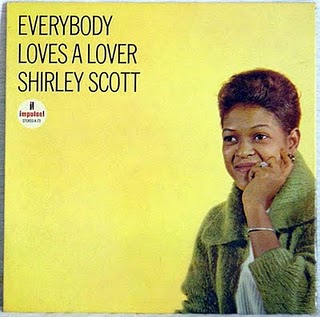
Everybody Loves a Lover is an album by jazz organist Shirley Scott recorded for the Impuse! label in 1964 and performed by Scott with Stanley Turrentine, Bob Cranshaw and Otis Finch. The album has not appeared on CD yet, but the first three tracks were released on the CD reissue of Turrentine's Let it Go.
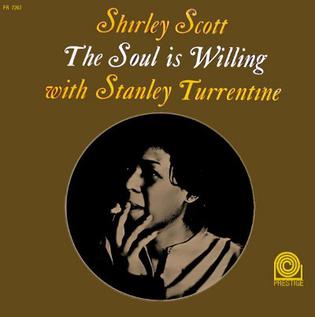
The Soul Is Willing is a studio album by organist Shirley Scott recorded and released in 1963 for Prestige as PRLP 7267. It features famous saxophonist Stanley Turrentine. In 1995, the album was reissued along with Soul Shoutin' on the same CD, featuring a different track order.

Hip Soul is a studio album by organist Shirley Scott recorded in 1961 for Prestige and released the same year as PRLP 7205.

Blue Flames is a collaboration album by organist Shirley Scott and saxophonist Stanley Turrentine recorded in 1964 and released on the Prestige label.
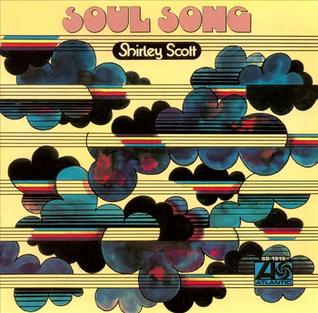
Soul Song is an album by organist Shirley Scott recorded in 1968 and released on the Atlantic label.
Earl Charles Barrington May was an American jazz bassist. He was "one of the most prodigious and prolific bassists of the postwar era".
Otis "Candy" Finch, Jr. was an American jazz drummer.


















